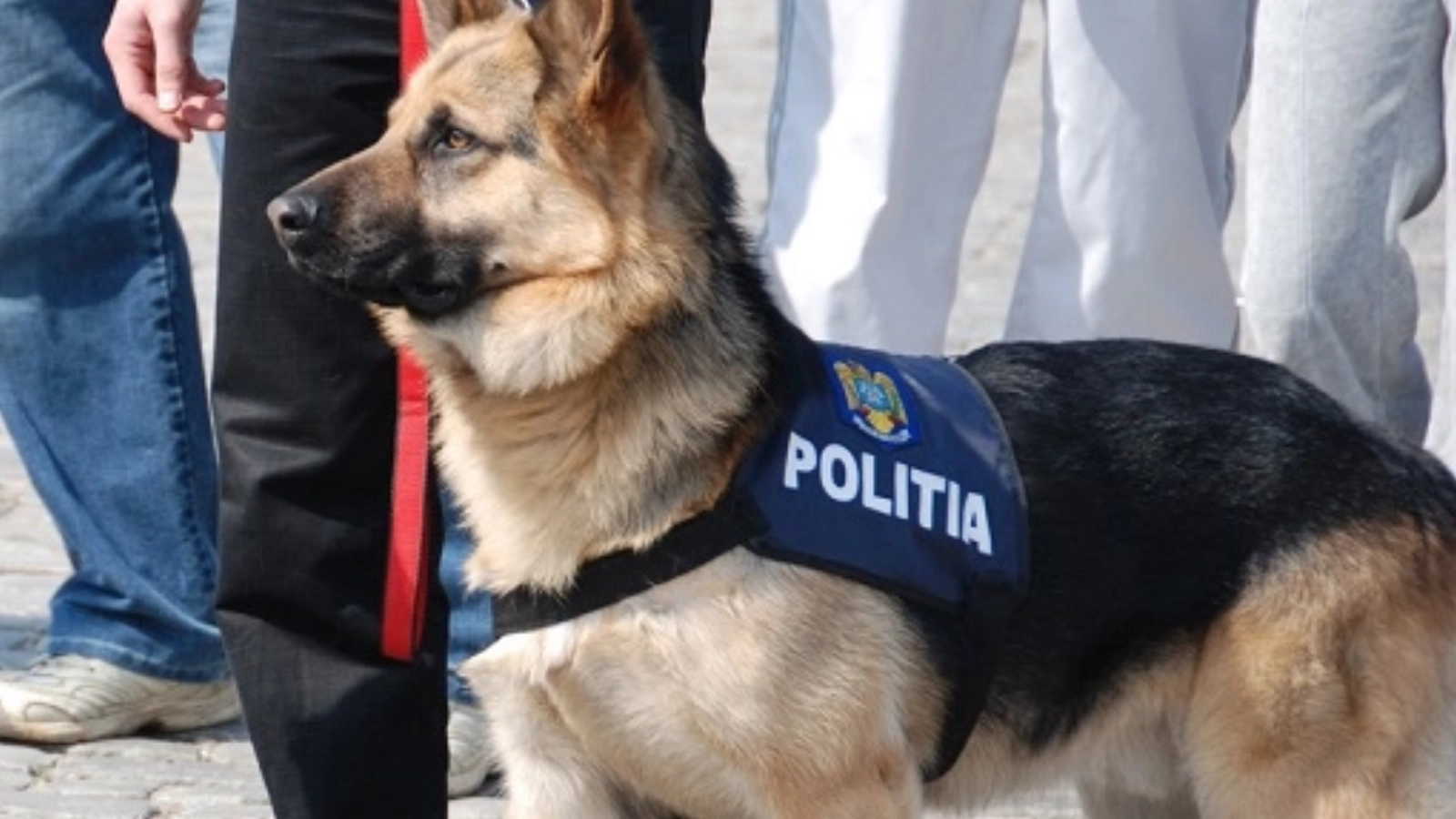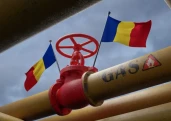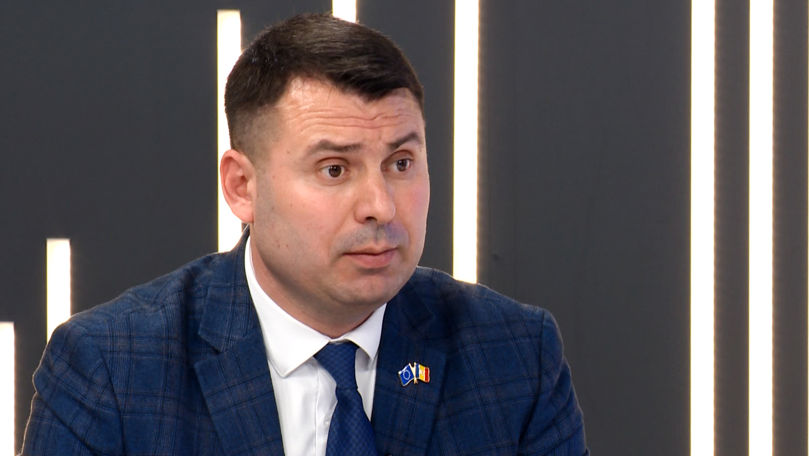All the dogs of the Ministry of Internal Affairs (MAI), including the hero dogs sent to rescue victims trapped under the rubble following earthquakes, are trained in one of the largest specialized schools in Europe, located in the Dumbrava Sibiului Forest, on the outskirts of the city with the same name, at the Canine Center, the only one of its kind in Romania.
The news that a dog from Mexico died in the mission, in Turkey, in an attempt to save a man, aroused the compassion of those who train such "non-speaking heroes".
"The canine team is always in the front line. The canine team comes first, then the rest follow. In truth, these service dogs are wordless heroes," chief police commissioner Daniel Caprita, from the Canine Center in Sibiu told Agerpres.
With an experience of three decades in the training of trainers and service dogs of the MAI, Daniel Caprita is the head of the Training and Tactical Training Department at the Sibiu Canine Center.
"As a specialized unit in this field, we prepare and train canine teams both for the Romanian Police and for the General Inspectorate of the Romanian Gendarmerie, for the General Inspectorate of the Border Police, but also for other institutions in the national defense and national security system, at their request. We have the Frontex Agency that generates at European level procedures for the use of dogs for external borders. And the level we are preparing is a good level for the missions we are entrusted to participate in and solve these cases," explains chief commissioner Daniel Caprita.
According to him, two of the rescue teams sent by Romania to Turkey after the earthquake were trained in Sibiu.
One of the well-known Romanian rescue dogs, which was also in Turkey, is Thor, a six-year-old German shepherd dog, accredited for urban search and rescue by the Sibiu Canine Center and part of team since 2018, according to the Department for Emergency Situations.
The dogs trained in Sibiu to rescue victims after the earthquake are from the German Shepherd, Belgian Shepherd and Rottweiler breeds.
According to the head of the Training and Tactical Training Department at the Sibiu Canine Center, a special training is needed, which lasts at least four months, for a dog to learn, together with its handler, how to save a man trapped under the rubble.
Annually, 200 dogs leave the gates of the special training school in Sibiu, ready to face the work of the Police, Gendarmerie, ISU. The best dogs have double specialization. Every two years, the canine team returns to training in Sibiu.
One of the dogs already working at ISU Sibiu is Elsa, trained by her instructor, Ionut, who is prepared to risk her life to save people after earthquakes.
"Elsa is a 4-year-old Belgian Malinois Shepherd dog. We have been a canine-man couple for about three and a half years. She is trained daily in discipline and searching for victims under the rubble. She is specialized for natural disasters and earthquakes, participated in several missions and exercises that were completed successfully, finding the victims under the rubble, in the end signaling them and waiting for the first aid crews to intervene," sergeant Ionut Sabau, Elsa's 'partner', said.
The story of hero dogs begins at a special maternity hospital, unique in Romania, located within the premises of the Sibiu Canine Center.
The Canine Center means training grounds, shelters for dogs and a maternity ward, because all the dogs that are trained for MAI come from parents located in Sibiu, in this special center. Even from a young age, the puppies are monitored by veterinarians and checked through repeated tests, in order to be able to "work" for the Police, Gendarmerie, ISU and other structures of the MAI.
One of the smallest dogs found at the special maternity hospital in Sibiu is a seven-week-old puppy, from the German Shepherd breed, from parents located in the Canine Center. Only a few employees of the Center have access to the maternity ward, and they must wear a robe and make sure that their shoes are disinfected, so as not to endanger the health of the four-legged.
"The Canine Center means a breeding place of approximately 30 specimens, the breeds we have now are the German Shepherd, the Belgian Shepherd and the Rottweiler. Breeding begins around the age of 18 months, in females and males, we produce puppies, they are tested, evaluated to become police dogs in the future. These are the breeds most suitable for training, other breeds can be introduced, but for now the greatest demand is for the German Shepherd, followed by the Malinois and the Rottweiler on the patrol intervention side," the head of the Canine-technical Service, veterinarian Marius Anghel said.
According to the head veterinarian at the Canine Center, the dogs at the special maternity hospital in Sibiu benefit from buildings with central heating, the best quality food and are surrounded by people who love animals and supervise them 24/7. At the same time, they are provided with medication from the age of 21 days and follow a vaccination and deworming protocol until the age of three and a half months.
Approximately 80 pct of the dogs born in Sibiu and tested here successfully pass all the tests and later work for the MAI, the rest being given to the care of those interested.
"There are few canine centers in the whole of Europe. I think this is the biggest in Eastern Europe. I like working here and I hope to work for many more years," said Marius Anghel, a veterinarian at the Canine Center.
The dogs from the Sibiu Canine Center benefit from the help of a team made up of three veterinarians and three veterinary nurses, with medical equipment for hematology, biochemistry, hormone testing, and an ultrasound.
With a 73-year tradition, the Canine Center stood out with good results at the international level, such as the mission in Turkey, but it also faced the challenges of the pandemic, as evidenced by the pilot project from 2022, from the International Airport of Sibiu, where the police dogs helped to detect the infected passengers.
"It was a scientific research work. Of course, the dogs confirmed, they recognized this smell following the training and preparation. And indeed, the hypothesis that we discussed at the beginning of the project was confirmed, namely the ability of the dogs on duty to olfactory detect the SARS-CoV-2 virus in people infested with it," chief commissioner Daniel Caprita stressed.
MAI service dogs do not have ranks. When they retire, they are usually adopted by those they worked with.
"They have a quiet pension, they are provided with food, accommodation and specialized medical assistance throughout their lives," Daniel Caprita said.
The place where MAI dogs are trained is special. Before leaving the city of Sibiu, towards the Paltinis mountain resort, drivers can see on the left side of the road the sign that reads "General Inspectorate of the Romanian Police", "Sibiu Canine Center", with the contours of a policeman and a dog accompanying him being drawn. On a road through the forest, you reach the gate of the Canine Center, where visitors are greeted by a unique sign, marked on the road with white paint: the footprint left by a dog's paw. Beyond this sign begins the story of the wordless heroes.AGERPRES
































Comentează